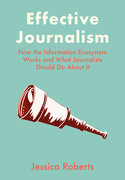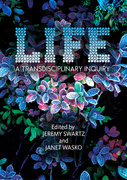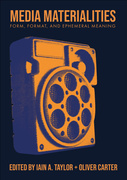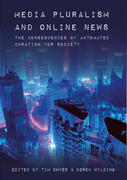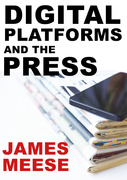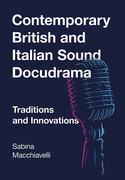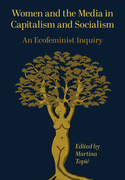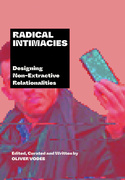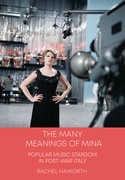Postage
We are currently updating our postage rates. Please contact us for shipping costs for print journals. For institutional print and online prices for 2023 volumes please see our pricelist:
www.intellectbooks.com/info-journal-librarians#pricelist.
VAT
VAT will be charged, where applicable, at the standard rate for online only orders, and on the online component of institutional (print and online) subscriptions (50% of the price).
Ordering
Ordering through a Subscriptions Agent
Firstly, if you currently order through a subscriptions agent, please continue to do so. We are working closely with subscriptions agents to ensure smooth processing of subscriptions and collections ordered through them.
If you previously ordered via Turpin we have options below:
For all customers who have previously ordered via Turpin, please see below for the different options for ordering and renewing journal subscriptions and Collections:
Collections:
1. Renewing a Collection: We will be in direct contact with you
Renewing a Full Journals Collection, Subject Collection, Tailored Collection or other orders with special arrangements or pricing:
We will shortly be in contact if we have not contacted you already with an invoice, quotation or details of how to renew your Collection through us. If you have a 2022 Collection that you are looking to renew, and haven't heard from us by 14th November, please contact us on
journalsubscriptions@intellectbooks.com.
2. Seven or more journals: Get in touch with us :
Are you subscribing to, or considering subscribing to, seven or more Intellect journals, or looking to order a new Full Journals Collection, Subject Collection or Archive Collection?
If you are looking to order a new Collection or Archive Collection, or if you want to find out more about our discounted Tailored Collections for customers subscribing to seven or more journals, or for other specific discount queries, please do get in touch at
journalsubscriptions@intellectbooks.com. If you currently subscribe to six Intellect journals, and are considering ordering extra titles, please contact us for a quotation as you may be able to save money by ordering seven or more journals as a Collection.
Online Only
3. Online only for 6 or fewer Journals: Visit Intellect Discover
Renewing or ordering six or fewer Intellect journals, online only:
The launch of Intellect's new hosting platform Intellect Discover is only a few days away, with go-live date of 8 November 2022. From 8 November, you will be able to purchase and renew institutional online only subscriptions to Intellect's journals via Intellect Discover on www.intellectdiscover.com. You'll also be able to purchase E-books, articles, chapters and more. The page is behind a firewall until launch, so please don't be concerned that you can't access it yet. If you have any questions, feel free to contact us at contact@intellectdiscover.com.
Alternatively, you can order online only subscriptions via your subscriptions agent if you prefer.
Print and Online
4. Print and online: Contact your Subscription agents
Renewing or ordering six or fewer Intellect journals, print and online; or single issues (print):
We hope to be able to offer the option to purchase print and online journals via Intellect Discover soon, however in the meantime, we ask that you order print and online subscriptions via your subscriptions agent. Please contact us at journalsubscriptions@intellectbooks.com if you are unable to order via a subscriptions agent - we will be able to invoice you in due course, however unfortunately due to the volume of enquiries we are dealing with, there will be delays to this. Please also note that there will be delays to fulfilling print orders while we set up our new print fulfilment arrangements.
How to contact us
Below are our contact details to order. If possible, please contact us via email:
E-mail:journalsubscriptions@intellectbooks.com
Web:
http://www.intellectbooks.com
Phone: +44 (0)117 958 9910
More information on Intellect Discover
Intellect Discover is launching 8 November 2022. After this date, all journal content currently hosted on Ingenta Connect will be available from http://www.Intellectdiscover.com.
Please see our migration page for more information: https://www.intellectbooks.com/migration.
IngentaConnect credentials will be transferred - please use the username and password you previously used to access Intellect content on Ingenta. Legacy usage reports will be available on Ingenta Connect until 8 November 2022, and then transferred to Intellect Discover. Whilst we are aiming for a smooth transition, it is advisable that you download all legacy usage reports before this deadline to make sure you have a full record.
If you have any questions, feel free to contact us at contact@intellectdiscover.com.
To order older back volumes (Three years or older) (Print)
For print issues over three years old, please contact Periodicals Service Company, 351 Fairview Avenue - Ste 300 Hudson NY 12534 USA, Tel: 518.822.9300, psc@periodicals.com, http://www.periodicals.com.
To order single articles (pdf)
Single articles can be purchased on a pay-per-view basis via http://www.Intellectdiscover.com, or via Copyright Clearance Center's Get It Now Service, or from the British Library's Document Supply Service.
Subscription Activation
Subscribers with online or print and online subscriptions will need to activate their subscriptions via our online hosting Intellect Discover. Information on how to set up and activate subscriptions can be found on our Subscribe page page, or on our Information for Librarians page.
Subscriptions Info
Subscriptions are on a full volume (calendar year) basis. Subscriptions provide access to the year/volume purchased only. Access will be granted on publication of the first issue of the subscribed volume(s). Online access to purchased volumes is perpetual. Back volume access is not included unless purchased separately or as part of an Intellect tailored, subject or full journals collection. For further information on collections please see our Collections page.
No cancellations will be accepted. No refunds or returns, unless under exceptional circumstances.
Subscriptions, including two-year subscriptions, cannot be cancelled partway through the subscription term.
For further information on subscribing, access and any other questions, please see our Subscribe or Information for Librarians page.






